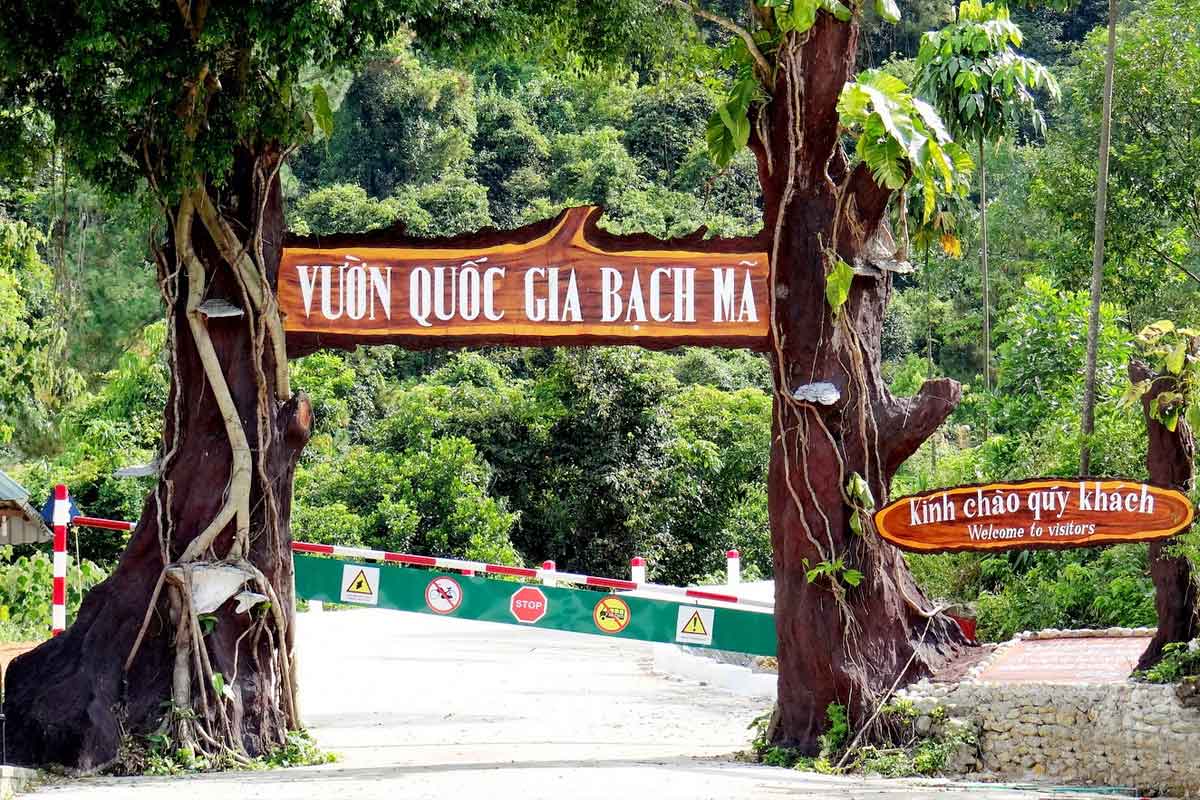

Bach Ma National Park was established in 1991 and covers more than 37,000 hectares. It’s a one-hour drive to the southeast of Hue, the provincial capital and tourism center that mainly draws visitors to its temples and royal tombs.
Bach Ma is the only strip of Vietnam’s primeval forest that connects the sea to the Vietnam – Laos border. The destination is also home to many deserted villas formerly used by colonial French officers and Hue’s upper-class families.

Four photography lovers Vo Rin, Nguyen Hong Huy, Ha Vu Linh and Nguyen Thuy Linh spent time traveling to Bach Ma from 2019 to 2021 to experience nature and capture the life of rare birds nestled inside the national park.
Pictured is their photo shooting spot at a villa, with a view of the Bach Ma forest at an altitude of about 1,000 meters above sea level.

A chestnut-collared Yuhina alights on a red maple tree branch. It is one of the species in the Zosteropidae family. The bird is about 14 centimeters long and 14 grams in weight, with a dark grey crown, hind crown and nape with narrow long white streaks.
Spanning 37,500 hectares and covered by evergreen tropical and subtropical rainforests, Bach Ma National Park is home to over 1,700 animal species, accounting for 7 percent of Vietnam’s total species. Of this, there are 363 bird species, with 16 listed as endangered in Vietnam’s Red Book of species vulnerable to extinction.

Thanks to beautiful weather, photographers captured this white-browed shrike babbler looking for food while perched on a low pine branch. The babbler has a black crown and nape, broad white supercilium, and grey upperbody.

The 26-year-old Huy was excited to capture a long-tailed broadbill with blueish-green plumage on the belly, back, and wings. This bird is usually seen foraging in small flocks. Despite their loud high-pitched calls, they are relatively shy birds that usually hide among the foliage of trees.

Another colorful bird on Bach Ma is this red-headed Trogon, which is on average 34 centimeters in length. The male in this photo has a red head and breast, a unique feature in the Trogon group.
The most favorable time to capture this species is during mating season in November, when it appears to call for its partner.

The collared owlet is the smallest owl in Asia, at 15 centimeters and 60 grams. This bird has a grey-brown color and a bare back and flanks, while its head is more spotted. The collared owlet is most active during daylight. Being diurnal, this bird can be seen perching, hunting and calling during most parts of the day, and sometimes at night.

A barred cuckoo dove has an average size of 38 centimeters and a distinctive color of gloss violet and green on its nape. In Bach Ma National Park, it is easy to photograph this species during the nesting season.

One of the rare birds the team captured for the first time inside the Bach Ma forest is this white-gorgeted flycatcher with a triangular white bib bordered with a black, gray head, frosty white brow, and ruddy wings and tail.

An orange-bellied leafbird is seen absorbing nectar from peach blossoms inside the Bach Ma forest. It is brightly colored with an orange belly, green back, blue tail and feathers, and a black and blue patch over its throat and chest. It has a long, curved beak and feeds on insects, spiders and nectar.
“Some kinds of birds take the team much time and patience to capture. We experienced many emotions during our journey. While we are watching birds in heavy rain we had to quickly collect our equipment and find shelter,” Linh recalled.

Silver pheasants are rare in Bach Ma. The male is black and white, while the female is mainly brown. Both sexes have a bare red face and legs.
“Early in the morning, this white pheasant appeared to cross a trail in Bach Ma to feed. It is very shy and difficult to approach and we often had to sit in a car to wait for it,” said Vo Rin, 38, having photographed 418 bird species in Vietnam.
